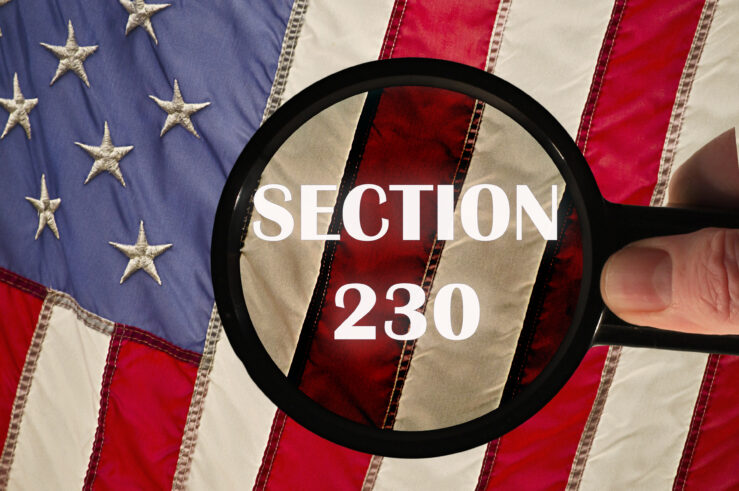Showing results for: “digital markets act”
Biweekly FTC Roundup: Total Drama Island Edition
In a Feb. 14 column in the Wall Street Journal, Commissioner Christine Wilson announced her intent to resign her position on the Federal Trade Commission (FTC). For those curious to know why, she beat you to the punch in the title and subtitle of her column: “Why I’m Resigning as an FTC Commissioner: Lina Khan’s ... Biweekly FTC Roundup: Total Drama Island Edition
Mergers and Innovation: DOJ and FTC Take Heed
Economists have long recognized that innovation is key to economic growth and vibrant competition. As an Organisation for Economic Co-operation and Development (OECD) report on innovation and growth explains, “innovative activity is the main driver of economic progress and well-being as well as a potential factor in meeting global challenges in domains such as the ... Mergers and Innovation: DOJ and FTC Take Heed
No, Chevron Deference Will Not Save the FTC’s Noncompete Ban
The Federal Trade Commission (FTC) announced in a notice of proposed rulemaking (NPRM) last month that it intends to ban most noncompete agreements. Is that a good idea? As a matter of policy, the question is debatable. So far as the NPRM is concerned, however, that debate is largely hypothetical. It is unlikely that any ... No, Chevron Deference Will Not Save the FTC’s Noncompete Ban
State-Mandated Digital Book Licenses Offend the Constitution and Undermine Free-Market Principles
Various states recently have enacted legislation that requires authors, publishers, and other copyright holders to license to lending libraries digital texts, including e-books and audio books. These laws violate the Constitution’s conferral on Congress of the exclusive authority to set national copyright law. Furthermore, as a policy matter, they offend free-market principles. The laws interfere ... State-Mandated Digital Book Licenses Offend the Constitution and Undermine Free-Market Principles
Killer Acquisition or Leveling Up: The Use of Mergers to Enter Adjacent Markets
In the world of video games, the process by which players train themselves or their characters in order to overcome a difficult “boss battle” is called “leveling up.” I find that the phrase also serves as a useful metaphor in the context of corporate mergers. Here, “leveling up” can be thought of as acquiring another ... Killer Acquisition or Leveling Up: The Use of Mergers to Enter Adjacent Markets
A Few Questions (and Even Fewer Answers) About What Artificial Intelligence Will Mean for Copyright
Not only have digital-image generators like Stable Diffusion, DALL-E, and Midjourney—which make use of deep-learning models and other artificial-intelligence (AI) systems—created some incredible (and sometimes creepy – see above) visual art, but they’ve engendered a good deal of controversy, as well. Human artists have banded together as part of a fledgling anti-AI campaign; lawsuits have ... A Few Questions (and Even Fewer Answers) About What Artificial Intelligence Will Mean for Copyright
Section 230 & Gonzalez: Algorithmic Recommendations Are Immune
In our previous post on Gonzalez v. Google LLC, which will come before the U.S. Supreme Court for oral arguments Feb. 21, Kristian Stout and I argued that, while the U.S. Justice Department (DOJ) got the general analysis right (looking to Roommates.com as the framework for exceptions to the general protections of Section 230), they ... Section 230 & Gonzalez: Algorithmic Recommendations Are Immune
7 Top Takeaways from the 2nd Annual Mercatus Antitrust Forum
At the Jan. 26 Policy in Transition forum—the Mercatus Center at George Mason University’s second annual antitrust forum—various former and current antitrust practitioners, scholars, judges, and agency officials held forth on the near-term prospects for the neo-Brandeisian experiment undertaken in recent years by both the Federal Trade Commission (FTC) and the U.S. Justice Department (DOJ). ... 7 Top Takeaways from the 2nd Annual Mercatus Antitrust Forum
Biweekly FTC Roundup: A Guide for the Perplexed Edition
In a prior post, I made the important if wholly unoriginal point that the Federal Trade Commission’s (FTC) recent policy statement regarding unfair methods of competition (UMC)—perhaps a form of “soft law”—has neither legal force nor precedential value. Gus Hurwitz offers a more thorough discussion of the issue here. But policy statements may still have ... Biweekly FTC Roundup: A Guide for the Perplexed Edition
Why I’m a Skeptic of a Noncompete Ban
Under a recently proposed rule, the Federal Trade Commission (FTC) would ban the use of noncompete terms in employment agreements nationwide. Noncompetes are contracts that workers sign saying they agree to not work for the employer’s competitors for a certain period. The FTC’s rule would be a major policy change, regulating future contracts and retroactively ... Why I’m a Skeptic of a Noncompete Ban
Fixing the Procedural Infirmities in the DMA’s Draft Implementing Regulation
Just before Christmas, the European Commission published a draft implementing regulation (DIR) of the Digital Markets Act (DMA), establishing procedural rules that, in the Commission’s own words, seek to bolster “legal certainty,” “due process,” and “effectiveness” under the DMA. The rights of defense laid down in the draft are, alas, anemic. In the long run, ... Fixing the Procedural Infirmities in the DMA’s Draft Implementing Regulation
The FTC’s Noncompete Rule: Shouldn’t Doesn’t Mean Can’t, but Maybe It Should
Former U.S. Labor Secretary Gene Scalia games out the future of the Federal Trade Commission’s (FTC) recently proposed rule that would ban the use of most noncompete clauses in today’s Wall Street Journal. He writes that: The Federal Trade Commission’s ban on noncompete agreements may be the most audacious federal rule ever proposed. If finalized, ... The FTC’s Noncompete Rule: Shouldn’t Doesn’t Mean Can’t, but Maybe It Should
















